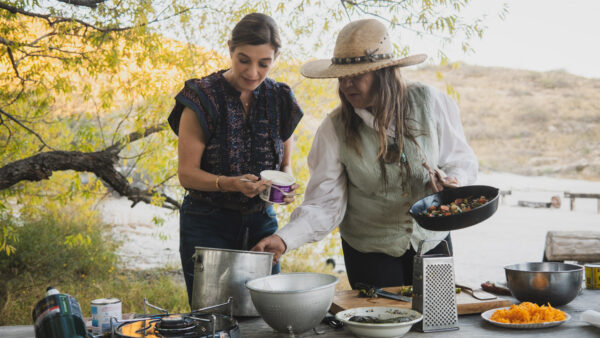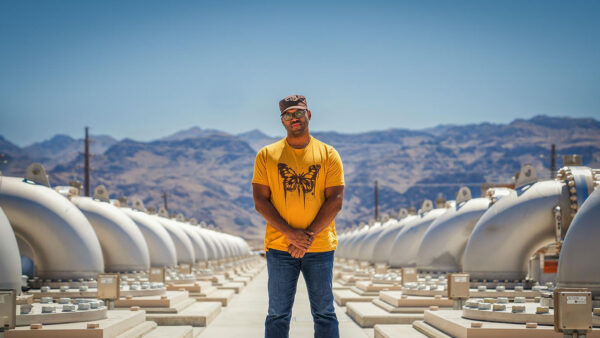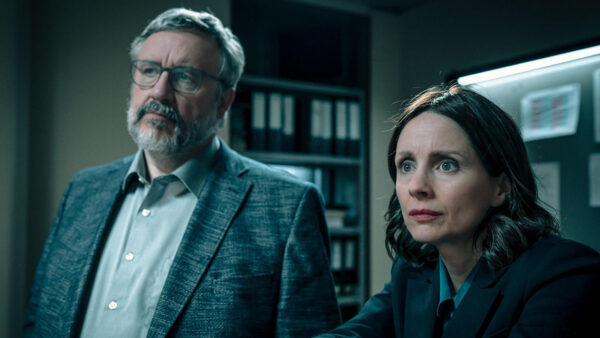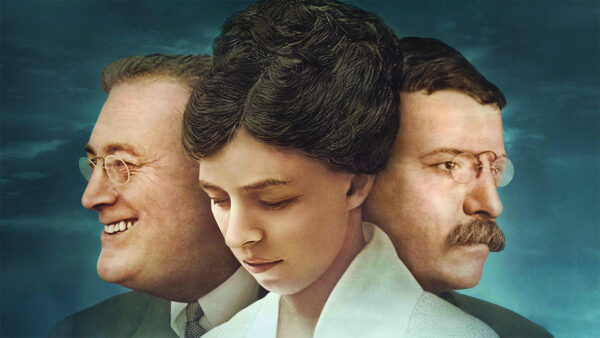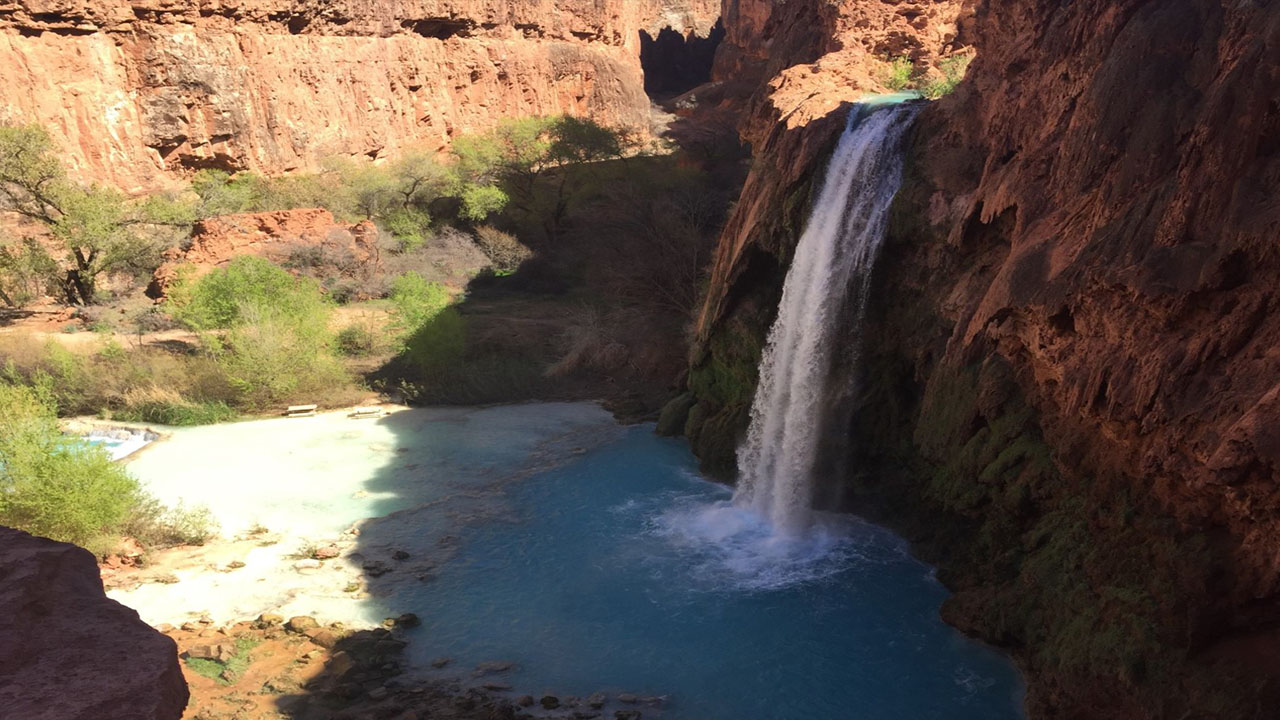
Reaching Out Across Arizona
March 1, 2018
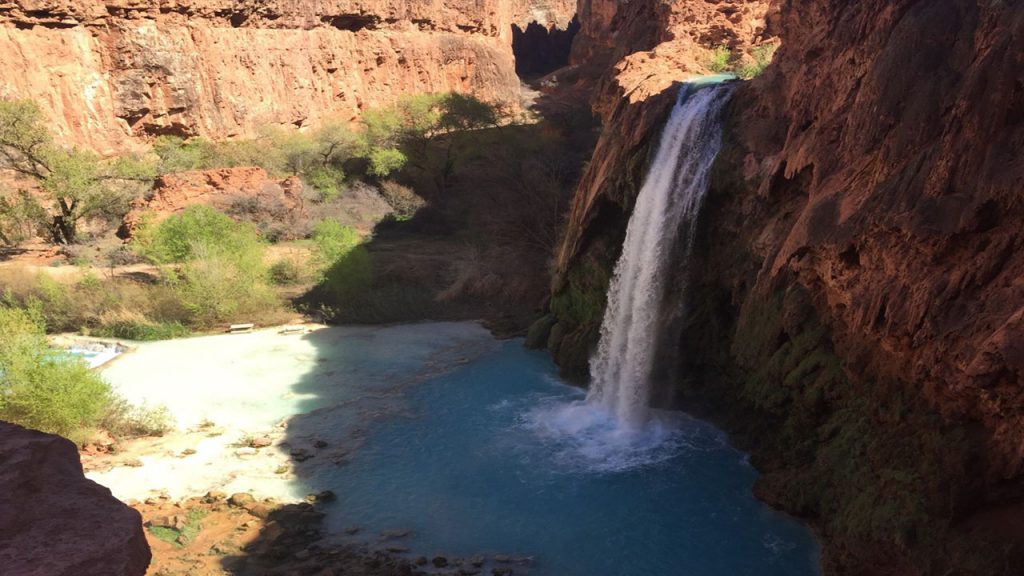
Where in the State Is Arizona PBS?
Most members know that Arizona PBS is based in downtown Phoenix, where we’re a part of ASU’s Walter Cronkite School of Journalism and Mass Communication. But our presence throughout the rest of the state extends beyond our broadcast signal. Our Educational Outreach efforts cover the entire state.
And reach out we do: seven members of the Educational Outreach team are regional coordinators who crisscross the state many times over each year. More than half of them live and work outside the Phoenix area, and all of them are embedded in the communities they serve. From there, they each travel in a broad radius to cover every county in the state, traveling thousands of miles per year to represent Arizona PBS from the border to the Grand Canyon and everywhere in between. The end goal is to provide early childhood educators with resources to improve their preschools and daycare centers, enhance their teaching methods and even further their own education.
Meet the Coordinators:
Lisa Cobb, one of the Maricopa County coordinators, serves on the boards for Rio Salado College, Estrella Mountain Community College and Glendale Community College as well as various early childhood advisory groups and the Valley of the Sun AEYC Executive Board. She also serves as an advisor for the Maryvale High School Early Childhood Career Tech program.
Kristine Nishimura is the coordinator for Cochise, Pima and Santa Cruz counties. Among other projects, she presented to every early childhood education class at Pima Community College.
Gordon Brown, a Maricopa County coordinator, also serves Pinal County, where he works with the Gila River and Ak-Chin Indian communities.
Susana O’Brien, the coordinator for La Paz, Yuma and Mohave counties, traveled more than 11,000 miles in 2017 — the highest estimated mileage among the group. She said that attending the National Association for the Education of Young Children conference in Atlanta was a highlight of 2017.
Together, Arizona PBS’ regional coordinators…
- Operate in all 15 counties in Arizona.
- Have traveled well over 30,000 miles in the past year.
- Lead hundreds of workshops each year, impacting thousands of educators and the tens of thousands of children in their classrooms.
- Four of the coordinators are also fluent in Spanish.
- Most have been classroom teachers themselves, and know exactly the challenges and rewards facing the educators they work with.
Nowhere in Arizona is too far away or too inaccessible for our Educational Outreach team. Not even the basin of the Grand Canyon, home to the town of Supai on the Havasupai Indian Reservation. It has the distinction of being the only place in the United States where mail is still carried in by mule.
Or, as two of our team members found, you can also visit by helicopter.
Tammy Lee, regional coordinator for Coconino, Gila and Yavapai counties, and Mark Becker, director of the Arizona Early Childhood Workforce Registry, made the trip to Supai last year. “It was such an opportunity to go to the bottom of the Grand Canyon and to visit a tribe that not a lot of people know even exists,” Lee said.
The trip came about after Becker met Supai’s Head Start director, Carlos Powell, at the annual First Things First Summit, a gathering of early childhood educators, directors and state agencies. Powell was particularly interested in the First Things First scholarship for early childhood educators, a program administered by Becker’s team at Arizona PBS.
“When we told Powell we would actually do a training, he was just amazed,” Becker said. “Whether you’re at the bottom of the canyon or on the border, we will come help you and work with you if you’re under the purview of First Things First.” As early childhood educators, Powell and his Head Start staff meet that qualification.
“We let him know that we would just need his help to get down there because we don’t have the time to hike down or go on a donkey,” Becker added, “so if he could help us with the helicopter and get all that figured out, we would go train his staff.”
The plan was to go in January 2017, but a snowstorm delayed the trip until March. After seven months of planning, Lee and Becker were eager to meet the staff and get started. Becker joined Lee in Prescott, where she lives, to make the 100-plus mile trek north together. On Monday morning, they showed up at the helipad and waited for the helicopter to take them down. Fortunately, the weekend’s strong winds had died down.
With supplies rigged to the bottom of the helicopter, and more scrunched between Becker and Lee, a relatively smooth, five-minute descent brought them into the village of Supai, population approximately 200.
“It is just a small village, only walkways, because there are no cars. There’s no need for vehicles because you’re in the bottom of the canyon,” Becker said. “It’s small enough to where you can walk from one end of the village to the other end in eight minutes. There’s a little post office, there’s a little police station, there’s an elementary school, the Head Start, and that’s basically the village, and then you’ll see some houses.”
“Last November, I participated in the 110th Arizona Town Hall, which focused on funding Pre-K -12 education. Participating in this event as a former educator was quite exhilarating. Many times, preschool is seen as less important or is forgotten in the realm of the education system. It is exciting to know that elected officials are starting to learn the importance of early learning and how beneficial early education can be in regards to the educational trajectory in a child’s life.”
— Veronica Hernandez, regional coordinator
With a little time to fill before the Head Start staff would be ready for them, Becker and Lee did what any adventurous visitor would do: they paid a visit to the famous Havasupai Falls.
“I’m from Wyoming,” Lee said, “so I like hiking and camping and roughing it every once in a while.”
When they returned to the village Head Start, the training was a very personal one, with six educators in attendance. Lee said she felt it was one of the best experiences of her career.
“What I love the most about this position is that after spending 10 years in an early childhood classroom with such a strict regimented schedule, because children need consistency, I am able to have flexibility with this position,” Lee said.
“And so to have the view out my office window change every day and to be able to go to the bottom of the Grand Canyon, I couldn’t have even imagined there would be such a career or position that would allow me to be able to do that.”
For Becker, a long-time part of the Educational Outreach team, this trip was definitely one of a kind.
“This was the first time I’ve ever been in an aircraft to go somewhere in Arizona to do a job. It was an experience, and it really helped solidify what we tell people that, we will come to help you anywhere in the state,” he said.
Arizona PBS is the only PBS station in the U.S. to administrate a registry and college scholarship program for early childhood educators. Mike Gaffney, coordinator for Navajo and Apache counties, the Navajo Nation and the White Mountain Apache Tribe, said that educators in his region are especially eager for professional development opportunities such as these scholarships, funded by First Things First.
Because of the distances between communities and because resources are stretched in his region, Mike said that personal relationships and partnerships with First Things First regional staff, Quality First Coaches, tribal groups and local colleges are especially crucial. At schools like Northland Pioneer College, which offers courses in nine locations across Navajo and Apache counties, First Things First scholarships are helping to increase enrollment in early childhood education programs.








